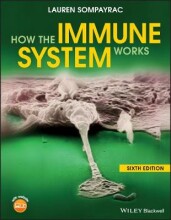Trust & conflicts
16 important questions on Trust & conflicts
Trust in communication plays a role through:
- However, both history and the nature of the interaction between the parties can shape the form that trust takes.
- Trust plays in all interaction a role. This interaction is formed by all kind of communications or even non-communications.
Different types of trust
- Institutional trust(/confidence):
- Is stable, but also dynamics in place
- Trust you have in institutions (that structure our society)
- Calculative trust:
- Between persons/groups
- More present at the beginning than at the end
- You don't know somebody but you are going to calculate the pro's and con's
- Relational trust (emotional trust/ identity trust etc.):
- Between persons/groups
- Expectations from the past are growing
- Mostly with people that are close to you
With what type of trust you often start?
Calculative --> Relative --> Trust heuristic (= you don't take it in consideration anymore)
- Higher grades + faster learning
- Never study anything twice
- 100% sure, 100% understanding
Trust can develop from calculative trust into relational trust. Which statement is correct?
- Relational trust is regarded as a stronger form of trust
- Calculative trust can easily develop into relational trust;
- Trust forms are stable over time
- Institutional trust does not change over time
Relational trust is based on affection and identity. To come to this level, people have to show vulnerability, gain insights that go beyond simple economic calculations. Therefore it is regarded as a stronger form of trust.
What is the strongest trust?
Rousseau et al discusses calculative trust, relational trust and institutional trust. In what sense does institutional trust differ from the other forms?
- The functioning of trust under stable conditions is central to the broad treatments given to institutional factors associated with trust. p. 396
- Institutional trust is relatively stable, it is the basis of the functioning of institutions and norms in society.
Differences between the 3 trust types
If institutional trust is gone, you have to arrange all through interpersonal arrangements (corruption, distrust)
What is Blind trust?
Trust heuristic is the more automatic variant.
Trust is an important factor in internet shopping, especially as internet shopping is subject to certain conditions. Which conditions are these
- Trust is an especially important factor under conditions of uncertainty and risk. As a new form of commercial activity, Internet shopping involves more uncertainty and risk than traditional shopping. Internet shops are less well known to consumers.
- The correct answer was risk and uncertainty. Due to the fact that internet shopping happens without face-to-face contact it is difficult to make sense of the situation and develop expectations about the other/ the company or product. This increases risk and uncertainty.
Different types of conflicts
- Instrumental conflicts:
- How a certain task or policy have to be executed. (doctors have to come up with the right treatment)
- Social-emotional conflicts:
- As soon as conflicts become part of your identity
- Often very difficult to deal with, because people feel affected in who they are
- Negotiation conflicts:
- Is about resources (land, water, for production, money)
- Power and dependency conflicts:
- If somebody has a conflict with his or her boss, and that boss uses the power as a superior to let you do what he/she wants
Conflicts build on/with each other
The overall trust in internet shopping as discussed by Lee & Turban (2004) can be seen as a form of:
- sociology and economics, conceptualizing trust mainly as a phenomenon within and between institutions, and as the trust individuals put in those institutions
- Overall internet shopping can be seen as the system or the institution internet shopping. Therefore it can be referred as trust in the institution.
How to deal with conflicts?
- Avoid (Importance (I) of the issue is low, Relation (R) is low)
- Flight (I high / R low)
- Adapt (I low / R high)
- Collaborate (samenwerken) (K high / R high)
- Negotiate (onderhandelen) (K high / R high)
R=relation
Acknowledge and value differences
- Because new perspectives are added (the strength of weak ties)
- Because necessarily change is often more succesful
- Because people are kept together (bridging on the basis of bonding)
- It limits the potential of groupthink (which is very destrutive: if we talk about groupthink, it's only open to their own ideas/perspectives)
One of the re-occurring issues in understanding trust in interactions is:
Trust is very context specific. Imagine you have to work with a value student on an assignment, and you do not have an option to do it with somebody else. This influences how and why you trust him/her or not. And what happens if the context changes, for instance if another student becomes available to collaborate with?
How to reduce uncertainties in negotiations?
- Neutralizing information
- Play with identities
- Asking who is to blame
- Formalizing communication
- Not joint fact finding
- Stereotypes/stigmatizing
- Avoid risks
- Ignore/reframe knowledge
How do conflicts develop?
- Past wins in strength
- Everything can become part of the conflict (even if it has nothing to do with it)
- Conflicts get generalized
- Conflict becomes something on its own (don't know anymore how the conflict started, it's just there)
- Conflict management: reconstruction of the past
The question on the page originate from the summary of the following study material:
- A unique study and practice tool
- Never study anything twice again
- Get the grades you hope for
- 100% sure, 100% understanding






























